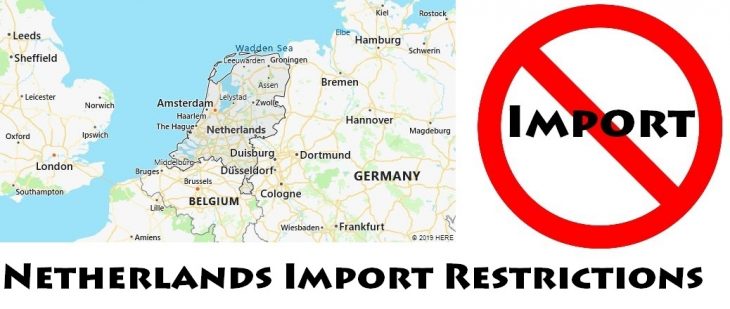Netherlands Import Restrictions
In order to enter Netherlands, certain goods are subject to specific controls and, regardless of their value and quantity, they require the consent of Netherlands government, preferably, license must be obtained prior to passage through the customs, preventing the goods from being retained. On this page, you will see what kinds of items are prohibited from entering the Netherlands, and which items need special documentation before exporting to Netherlands.
Import regulations
Senders should determine import restrictions from Netherlands authorities before posting:
- Animals and animal products
- Arms and ammunition
- Foodstuffs, prepared
- Hemp
- Hides and skins, raw
- Narcotics
- Pharmaceutical products
- Precious metal products
- Seeds
- Vegetables and plant products
- Weapons.
Special documentation requirements
Netherlands has no current requirements for special documentation.
Prohibitions
In addition to items prohibited by Dangerous and Prohibited Goods & Packaging Post Guide and ECI International Courier Regulations, Netherlands prohibits:
- Animals and animal products
- Animal and vegetable fats, oils
- Firearms and firearm parts
- Imitation and pirated products
- Knives
- Lottery tickets and advertising, unauthorised
- Mineral products
- Products of chemicals or allied substances
- Photographic or cinematographic products
- Plastics and articles thereof
- Printed articles; books and newspapers- offensive by nature
- Pearls, precious stones and metals
- Tanning or dyeing extracts
- Tobacco
- Vegetable products
Transporting food of any kind is prohibited under ECI Platinum.














































